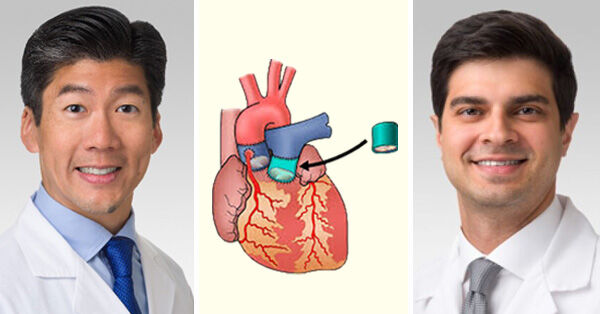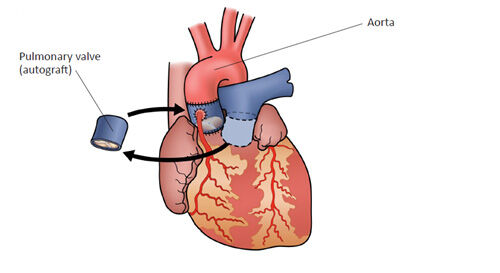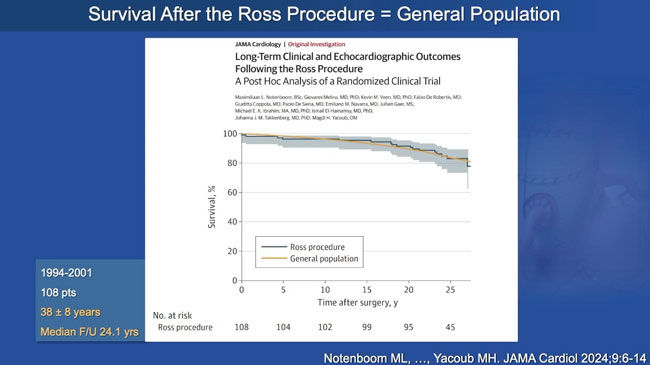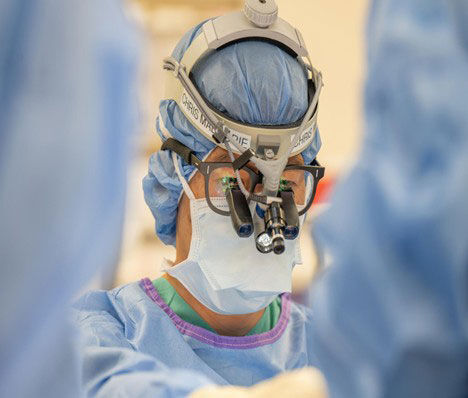Northwestern Medicine’s Bluhm Cardiovascular Institute Achieves 100th Ross Procedure!
Written By: Allison DeMajistre, BSN, RN, CCRN
Reviewed By: Adam Pick, Patient Advocate, Author & Website Founder
Published: June 21, 2025
Dr. Chris Malaisrie, and Dr. Christopher Mehta, cardiac surgeons at Northwestern Medicine Bluhm Cardiovascular Institute specialize in the treatment of aortic valve disease. Along with their team of experts at Northwestern Memorial Hospital, they recently performed their 100th successful Ross Procedure. “We’re happy to report that Northwestern Memorial Hospital has a 100 percent in-hospital survival rate for this complex procedure in addition to long-term durability,” said Dr. Malaisrie.

(Source: Northwestern Medicine)
The specialized team at the Northwestern Medicine Bluhm Cardiovascular Institute Center for Aortic Care offers advanced treatment options like the Ross Procedure for complex aortic conditions. From patients who have undergone multiple surgeries to those with congenital heart disease, our team develops custom evaluation and treatment plans for all types of aortic disease. “The Center for Aortic Care was designed to provide timely care no matter where our patients are. We can take care of problems that are both acute and emergencies in addition to longstanding and chronic issues. If patients can provide us with images of the aorta, we can look at it whether they’re in Chicago or Alaksa, and we are here to help,” said Dr. Douglas Johnston, chief of cardiac surgery at Northwestern Medicine.
The Ross Procedure is an innovative, yet underutilized procedure, that was first used in 1967 by Dr. Donald Ross. The Ross Procedure, which is also known as aortic valve replacement with pulmonary valve translocation, uses the patient’s own pulmonary valve, or autograft, to replace the diseased aortic valve. A human donor valve, also known as a homograft, is then placed in the pulmonary position.

(Source: Northwestern Medicine)
The Ross Procedure can be an ideal aortic valve replacement technique in children and young adults with aortic stenosis and aortic regurgitation. “Patients with severe aortic valve disease are typically older and will do great with a biological valve replacement made from the tissue of cows or pigs,” said Dr. Malaisrie. “However, for younger patients, typically 50 years or less, the Ross Procedure can provide long-term durability and freedom from reoperation.” The oldest patient at Northwestern to receive the Ross was in their 60s.

According to Dr. Malaisrie, a compelling advantage of the Ross Procedure is that the patient gets his or her own living tissue in the aortic valve position. As a result, recent research suggests that the Ross Procedure restores normal life expectancy without a lifetime regimen of blood-thinning medications.1
“The Ross Procedure can give patients their life back,” stated Dr. Malaisrie. “Plus, the patient’s quality-of-life, without the need for blood thinners, is ideal.”
Although the Ross Procedure has excellent durability, some patients can experience failure with either the newly placed aortic or pulmonary valve. However, Dr. Malaisrie said failure with either valve is not very common. “We estimate there is a 1 to 1.5% risk of reoperation for the aortic valve. For the pulmonary valve, some centers have reported less than a 5% failure rate out to twenty years.”
A successful Ross Procedure Program requires advanced resources, highly skilled and experienced surgeons, and a multidisciplinary team of experts equipped to care for the most challenging conditions. Patients with severe aortic valve disease can be confident in the world-class cardiovascular care they will receive from Dr. Malaisrie and Dr. Mehta at the Northwestern Medicine Bluhm Cardiovascular Institute in Chicago, Illinois.
Celebrating 20 years of clinical excellence, Northwestern Memorial Hospital is ranked among the top 10 programs in the nation for cardiology, heart and vascular surgery by U.S. News & World Report, 2024 – 2025 and among the top 20 hospitals in the world for cardiac surgery by Newsweek.
Related Links:
- See Dr. Chris Malaisrie’s Interactive Surgeon Profile
- Surgeon Q&A: The Ross Procedure and Aortic Aneurysms
- Cardiac Surgery Insights: Ross Procedure Advantages with Dr. Malaisrie
Keep on tickin,
Adam
1 Maximiliaan Notenboom, et al, “Long-Term Clinical and Echocardiographic Outcomes Following the Ross Procedure”, JAMA Cardiology, November, 2023.














